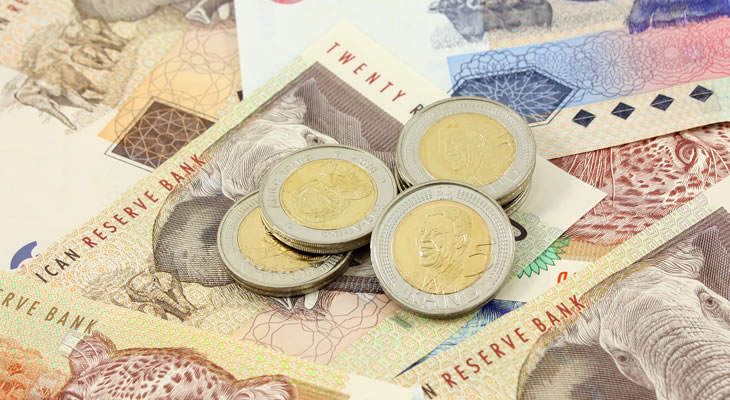The Pound to South African Rand exchange rate has seen mixed movement since markets opened this week. A surge in demand for riskier currencies following the weekend’s French election news, as well as disappointing UK data, have left the pair below last week’s worst levels.
GBP ZAR began the week at the level of 16.81. When markets opened on Monday, investors bought up the Rand and GBP ZAR fell to an April low of 16.52.
The pair recovered slightly on Tuesday morning but still remains comparatively soft.
Market appetite for risk has improved this week which has been the main driver of GBP ZAR losses. Sunday’s first round of the French Presidential election closely matched opinion polls, with pro-EU Macron winning and anti-EU Marine Le Pen just behind him.
Opinion polling shows Macron easily winning the second round on the 7th of May. As a result, ‘Frexit’ concerns have lightened considerably this week, making risky currencies more appealing again.
Emerging-market currencies like the South African Rand in particular benefitted from increased expectations that a threat to global economic stability had been reduced.
South African political volatility has also played a major part in GBP ZAR fluctuations.
In the last few weeks, South Africa’s previous finance minister Pravin Gordhan was fired and as a result, Standard & Poor and Fitch downgraded their South African credit ratings to ‘junk’.
This caused the Rand to free-fall to a point where analysts consider the currency undervalued. Comments from the new SA finance minister, Malusi Gigaba, stating that he wished to prevent another credit rating cut, have since improved the Rand’s outlook.
South African Rand volatility has made GBP/ZAR trading uncertain and the situation could remain so for some time to come.
While GBP surged against most major rivals following this month’s UK election news, GBP ZAR only saw a brief rise before trending near the week’s opening levels.
This week’s UK data hasn’t improved the Pound’s position much either.
Tuesday’s public sector net borrowing data was disappointing, coming in at £-4.36b despite being projected to print at £-1.5b. On the other hand, the 2016/17 financial year had the lowest borrowing costs since the financial crisis.
Monday’s factory data from CBI also painted a mixed outlook. Current trends were solid and indicated exports were improving due to the low value of the Pound. However, businesses were far less optimistic about the next quarter than expected.
Britain’s economic outlook could shift even further on Friday, when preliminary Q1 Gross Domestic Product (GDP) data is published. The figures are currently expected to improve year-on-year from 1.9% to 2.2% but slow quarter-on-quarter from 0.7% to 0.4%.
If UK growth projections for Q1 are worse than expected, concerns that Britain’s economy is already slowing due to the Brexit vote would worsen and the Pound’s potential to advance would drop.
South African data is comparatively unlikely to influence the Pound to Rand outlook. Friday will see the publication of South Africa’s March trade balance data, but further political developments in the nation as well as risk-sentiment shifts are more likely to alter mid to long-term Rand movement this week.
At the time of writing this article, the Pound to South African Rand exchange rate trended in the region of 16.70. The Rand to Pound exchange rate traded at around 0.0598.


Comments are closed.